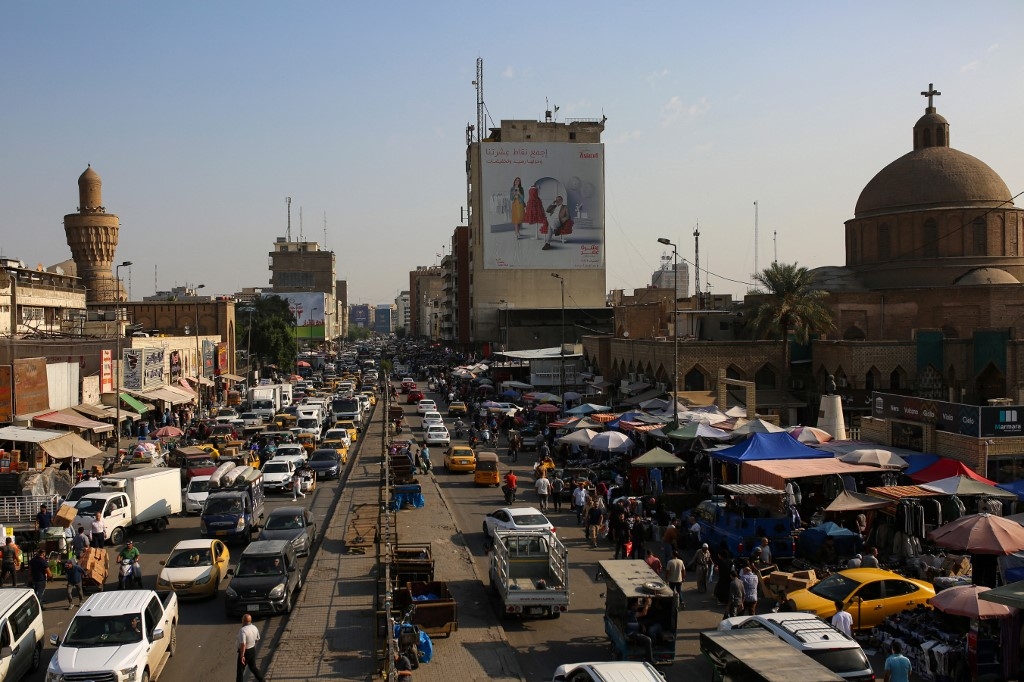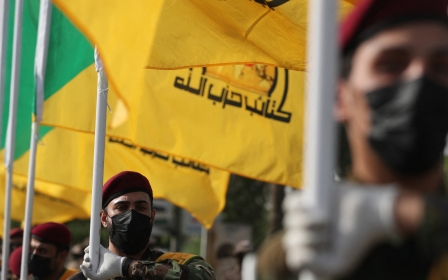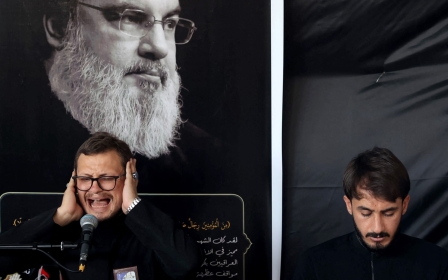Iraq: Officials vow action as Baghdad ranked among most polluted cities on Earth

Iraqi environmentalists have warned that action is needed to tackle pollution in Baghdad, as monitoring organisations declared the capital to have some of the most toxic air quality in the world.
Prime Minister Mohammed Shia' Al Sudani said at the weekend he had appointed a special investigative committee to look into complaints that a choking, sulphurous odour had engulfed Baghdad.
The Iraqi Ministry of Health and Environment said on Thursday that it was looking at a "comprehensive strategy" to address the problem, with the aim of "enhancing environmental awareness and reducing the effects of pollution".
It has blamed the problem on a range of issues, including illegal smelting operations, the use of high-sulphur oil in power generation plants and unregulated waste dumping.
Visibility in the capital has been heavily reduced over the past week, as a thick orange smog settled on the city.
New MEE newsletter: Jerusalem Dispatch
Sign up to get the latest insights and analysis on Israel-Palestine, alongside Turkey Unpacked and other MEE newsletters
Although it is not the first time this has occurred, there are concerns that more variable weather patterns exacerbated by climate change could make it a more common problem in future.
Earlier this week, Baghdad rose to the top of IQAir's live ranking of the cities with the world's worst air quality. On Thursday morning it was in fourth place, behind Lahore, Dhaka and Kinshasa.
Data gathered at the air quality monitor at the US embassy on 14 October revealed PM2.5 concentrations reaching as high as 237 µg/m³, a level that could risk serious health problems.
It prompted a warning by the government to Baghdad's citizens to remain indoors during the smog.
“Sulfur fog” covers Baghdad, painting mornings in yellow
— SHAFAQ News (@Shafaqnews) October 15, 2024
Read more: https://t.co/6C2av3hKKx pic.twitter.com/V61LNa7nbR
Harry Istepanian, programmes director at the Iraq Climate Change Center, told Middle East Eye that power plants within Baghdad were a likely source of the toxins, including facilities at Daura, Baghdad South 1 and 2, and Quds stations.
"Other contributors include the burning of solid waste at Nabaai and Nahrawan landfills and emissions from tens of brick factories, which also use high-sulphur fuel oil, besides many informal landfills and asphalt factories on the outskirts of Baghdad," he said.
"Current environmental laws need to be reviewed, and stricter regulations should be imposed on the burning of liquid fuels by both the public and private sectors."
Large oil reserves
Iraq has some of the world's largest oil reserves, and the country's economy has long been reliant on the fossil fuel.
Government ministers have admitted in the past that oil production has caused an increase in cancer rates, as well as numerous respiratory illnesses, across the country.
MEE contacted the Ministry of Health and Environment for comment, but had received no response at the time of publication.
Istepanian said the problems included a failure by the Ministry of Electricity and the Ministry of Oil to relocate power-generating facilities outside Baghdad.
"There is a clear lack of government policies and a willingness to impose tough regulations," he said.
"Besides, there is a major deficiency in law enforcement, as both public and private industries fail to comply with environmental regulations - ultimately, people's health is affected, particularly those who are vulnerable."
Middle East Eye delivers independent and unrivalled coverage and analysis of the Middle East, North Africa and beyond. To learn more about republishing this content and the associated fees, please fill out this form. More about MEE can be found here.




